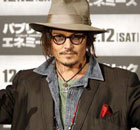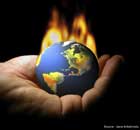Global General
Western countries warn of more sanctions against Iran
(Xinhua)
Updated: 2009-12-11 03:58
UNITED NATIONS -- The United States, France and Britain warned Iran on Thursday that more sanctions are inevitable if Tehran continues to defy United Nations demands.
"Should Iran continue to fail to meet its obligations, the international community will have to consider further actions," said U.S. Ambassador to the UN Susan Rice, who later told reporters that she meant tougher sanctions.
Despite pressure from the international community, Iran continues its nuclear program. Tehran maintains that it has the right to generate nuclear energy for civilian purposes. But Western powers suspect Iran of attempting to build nuclear weapons.
The UN Security Council met on Thursday to assess Iran's compliance with previous sanctions and heard a report from the sanctions committee on two shipments of Iranian arms bound for Syria that violated the UN arms embargo on Iran.
British Ambassador to the UN Mark Lyall Grant called the Iran sanction committee report "disappointing," because it set out "a pattern of violations" committed by Tehran.
"If you add this together with the continued uranium enrichment activities of Iran in violation of Security Council resolutions, of Iran's failure to answer questions to the (International Atomic Energy Agency) about its weaponization activities, the revelation of a secret enrichment site at Qom, and Iran's rejection of the offer over the Tehran nuclear research reactor," he told reporters, "then I think you can see that there is clearly this pattern of violations of international obligations and unwillingness of Iran to negotiate seriously with the international community over the nuclear issue."
Last month, the UN's atomic watchdog, the IAEA, censured Iran for hiding an enrichment plant in Qom. Just days later, Iran announced it would increase its enrichment program by building 10 new plants.
French Ambassador to the UN Gerrard Araud stressed the urgency of implementing new and tougher sanctions.
"There is no longer any reason to wait," he told the Council. " Iran places itself in a dangerous stalemate. The time has come to increase this pressure."
China and Russia urged for greater patience in continuing negotiations with Tehran.
"We need to be patient, calm, not emotional," Russian Ambassador Vitaly Churkin told the Security Council.










